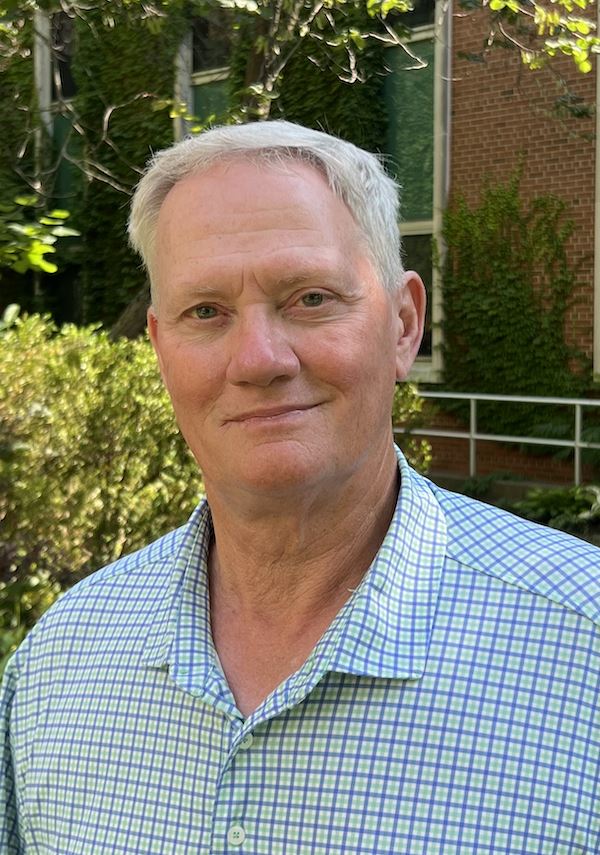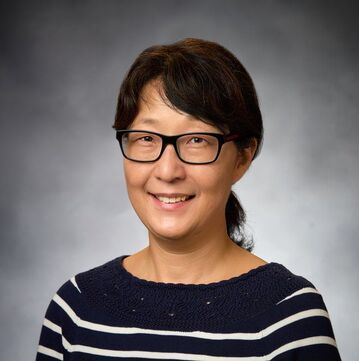- Home
- Invited Speakers
KEYNOTE SPEAKER
 SEEDS OF SOVEREIGNTY
SEEDS OF SOVEREIGNTY
Shiloh Maples, MSW, Anishinaabe Community Organizer, Seed Keeper, and Storyteller
Center for Regional Food Systems, Michigan State University
Shiloh Maplers is an Anishinaabe community organizer, seed keeper, and storyteller.
Shiloh has a Master's in Social Work from the University of Michigan, where she specialized in community organizing. She has also completed programs in organic farming and sustainable community design. During her time as a student, Shiloh recognized the powerful potential of food systems to heal and transform communities. Since then, Shiloh has been committed to serving the Indigenous food sovereignty movement and revitalizing her own ancestral foodways. For nearly a decade, Shiloh worked within Detroit's Indigenous community to create a food sovereignty initiative that increased access to ancestral foods, offered culturally-based nutrition education, and created opportunities for the community to practice their cultural foodways in the urban landscape.
In 2021, Shiloh was a writer-in-residence at Denniston Hill in upstate New York. In 2022, Shiloh partnered with Whetstone Media to launch her podcast, Spirit Plate -- which discusses the social, political, and historical reasons the Indigenous food sovereignty movement is necessary and uplifts the voices of seed keepers, chefs, historians, and community members from across the movement.
Additional Speakers:
Information will be added to this page as it becomes available. View the conference program on Sched for more details about session times, locations, and more.
 North America 2026 World Cup - Challenges and Opportunities
North America 2026 World Cup - Challenges and Opportunities
Dr. John N. Rogers III (Trey), Professor of Turfgrass Management
Department of Plant, Soil, and Microbial Sciences, Michigan State University
Dr. John N. Rogers, III (Trey) is a Professor of Turfgrass Management in the Department of Plant, Soil, and Microbial Sciences at Michigan State University. He has been on the faculty there since 1988. He is a native of Arkansas and grew up working in Hardscrabble Country Club in Fort Smith, Arkansas. He received a B.S. in Agronomy at the University of Arkansas in 1982 and then returned to be an Assistant Superintendent at Hardscrabble Country Club 1982-1983. He returned to the University of Arkansas and earned a M.S. in Agronomy in 1985 and received his Ph.D. in Agronomy from Penn State University in 1988. Since 1988, he has advised and graduated over 1100 students.
His current turfgrass research interests at MSU include performance turf renovations, turfgrass establishment and soil modification. Since 2012, he has assisted with over 20 golf course renovations. Starting in 2020 he began consultations with Keeneland Association and Churchill Downs for Turf racecourses maintenance and renovations.
He served as the lead scientist for the indoor turf project at the Pontiac Silverdome for the 1994 World Cup Soccer matches and the project leader of the Spartan Stadium turfgrass conversion in 2001-02. He was a turf consultant and project leader for the 2004 and 2008 Summer Olympic Games and the 2008 UEFA Cup. In 2021 he agreed with FIFA to assist with Research and Implementation of North America World Cup 2026.
His consultations on golf course, athletic field, and turfgrass matters are extensive throughout the United States as well as China, Greece, Japan, the Dominican Republic, Argentina, Brazil, Australia, Wales, England, and Spain. His National and International lectures and presentations total over 270, with over 230 publications and one book.
He is the senior author of two U.S. Patents. National organizations include the American Society of Agronomy, Crop Science Society of America, and ASTM.
 Design Sovereignty: Using Memories and Information in Creating a Just and Equitable Food System
Design Sovereignty: Using Memories and Information in Creating a Just and Equitable Food System
Keesa V. Johnson, M.DES., Food Systems Design Specialist
Center for Regional Food Systems, Michigan State University
Keesa V. Johnson is an award-winning human systems designer and eco-designer, who joined the Center for Regional Food Systems as a Food Systems Design Strategist in 2022. Her design focuses lie in adaptive inquiry (AI), co-designing immersive environments (online and mobile learning, simulations, and hybrid), applying various design frameworks (generative justice, radical participatory, asset-based community development, critical learning, and transformative research and design) within engagement experiences as well as partnership development. She is a co-leader of the Michigan Local Food Council Network and co-director of the Network for Inclusive Business Engagement where she designs bridging tools that eradicate harmful power dynamics within local and regional food systems initiatives using African-Indigenous Methodologies. She is also the founder of the Equity and Access Design Firm where she helps to amplify and galvanize community solutions in creating a just and equitable food future across the state of Michigan and Globally. You can learn more about Keesa athttps://www.linkedin.com/in/keesavjohnson.

Thriving Under Heat: Learnings from Heat-Loving Desert Plants
Dr. Seung Yon Rhee, Research Foundation Professor and Director
Plant Resilience Institute, Michigan State University
Seung Yon (Sue) Rhee is a Michigan State University Foundation Professor in the departments of Biochemistry and Molecular Biology, Plant Biology, and Plant, Soil, and Microbes and Director of MSU’s Plant Resilience Institute. Dr. Rhee’s group strives to understand how plants adapt and acclimate to changes in temperature, water availability, or nutrient limitation. They are also interested in decoding biological traits from molecular to organism scales. In addition, they are developing translational research programs involving engineering resilience and metabolic traits in bioenergy and cover crops. Dr. Rhee has extensive leadership, mentoring, and research experience and has trained over 160 scientists, many of whom have achieved leadership positions in academia, government, and industry.
Dr. Rhee received her B.A. in biology from Swarthmore College in 1992 and a Ph.D. in biology from Stanford University in 1998. In 1999, she joined Carnegie Institution for Science as Staff Associate and became the Founding Director of the Arabidopsis Information Resource (TAIR). She rose through the ranks at Carnegie to Staff Scientist, Acting Director, and Senior Staff Scientist between 1999 to 2023, before joining MSU in 2023. Her group was instrumental in establishing the Gene Ontology system. She also initiated two grassroots, international scientific communities, one on Biocuration to systematically annotate biological entities and second on Plant Cell Atlas to understand and engineer plant cells using single cell approaches. Most recently, she established a virtual institute called Water and Life Interface Institute (WALII), to understand how organisms survive with very little water. She has extensive leadership and community service experience with having served on over 25 scientific advisory boards, steering committees, and review boards.
Dr. Rhee is interested in training future leaders who come from historically excluded groups and who are interested in working on neglected research and societal problems. She emphasizes training scientists to explore the unknown and become independent in the pursuit of knowledge. While providing individualized training and mentoring program suited for each member, she strives to transition each trainee on creating and fostering agency to own their work and projects. Dr. Rhee is committed to creating a rigorous, collaborative, and innovative training environment. Expectations of lab members, which are elaborated on their lab website, are clearly communicated and discussed during recruitment, onboarding, and regularly throughout the tenure of each member. Dr. Rhee emphasizes responsible conduct of research, leadership, and communications in her training. Leadership based on service to fellow lab members, mentees, and the larger community in the department is highly valued, encouraged, recognized, and acknowledged. Every member of the Rhee lab plays active roles in improving the professional development and work environment for everyone in the lab and department. She meets with each lab member regularly (weekly or biweekly) and discuss not only their research design, implementation, data analysis, visualization, interpretation, and presentation, but also scholarly leadership, communication skills, teaching and mentoring skills, career planning, outreach and community leadership, and wellness and self-improvement. Her group performs individual development plans every six months and constantly evaluate how the training program is going via surveys, one-one meetings, and group discussions.
